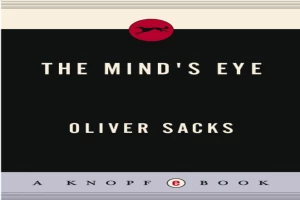The source of the book
This book is published for the public benefit under a Creative Commons license, or with the permission of the author or publisher. If you have any objections to its publication, please contact us.

The Mind's Eye
(0)
Author:
Oliver SacksNumber Of Downloads:
124
Number Of Reads:
293
Language:
English
File Size:
1.79 MB
Category:
Social sciencesSection:
Pages:
231
Quality:
excellent
Views:
3520
Quate
Review
Save
Share
Book Description
Published in 2010, The Mind's Eye by neurologist Oliver Sacks is a captivating exploration of the human brain's incredible resilience in the face of visual and communicative challenges. Sacks presents compelling case studies, including his own battle with eye cancer and a lifelong struggle with face recognition, shedding light on the remarkable adaptability of the mind.
The book delves into the lives of individuals grappling with compromised visual navigation and communication skills. Notably, Sacks narrates the story of Susan R. Barry, affectionately known as "Stereo Sue," who overcame a 48-year absence of stereoscopic vision through vision therapy. The narrative also unveils the experiences of renowned concert pianist Lilian Kallir, who exhibited surprising resilience despite the challenges posed by posterior cortical atrophy.
Key Insights:
Oliver Sacks
Professor of Neurology and Psychiatry at Columbia University. He received his education and suffered at first, as he and his brother entered a boarding school without the knowledge of his family, then he went to St. Paul's School in London, and received his education until he obtained a Bachelor's degree in organology and biology, and completed his studies to obtain a master's in order to qualify himself to practice medicine, Then he left England to Canada and then to the United States, which was a positive step towards a completely different career path from what he was accustomed to. He was a professor of neuroscience at the New York University of Medicine, and then he took a number of positions in a number of universities for medicine, and he wrote many books that got bestsellers, and then did a number of studies on a group of cases of people who suffer from neurological disorders, and he got He was honored on the anniversary of his death for his clear and distinguished contributions in supporting music therapy and the effect of this music on the human brain. Oxford University awarded him an honorary doctorate in civil law. D is a large number of awards that testify to his knowledge and excellence in his medical field.
Earn Rewards While Reading!
Every 10 pages you read and spent 30 seconds on every page, earns you 5 reward points! Keep reading to unlock achievements and exclusive benefits.
Read
Rate Now
5 Stars
4 Stars
3 Stars
2 Stars
1 Stars
Quotes
Top Rated
Latest
Quate
Be the first to leave a quote and earn 10 points
instead of 3
Comments
Be the first to leave a comment and earn 5 points
instead of 3